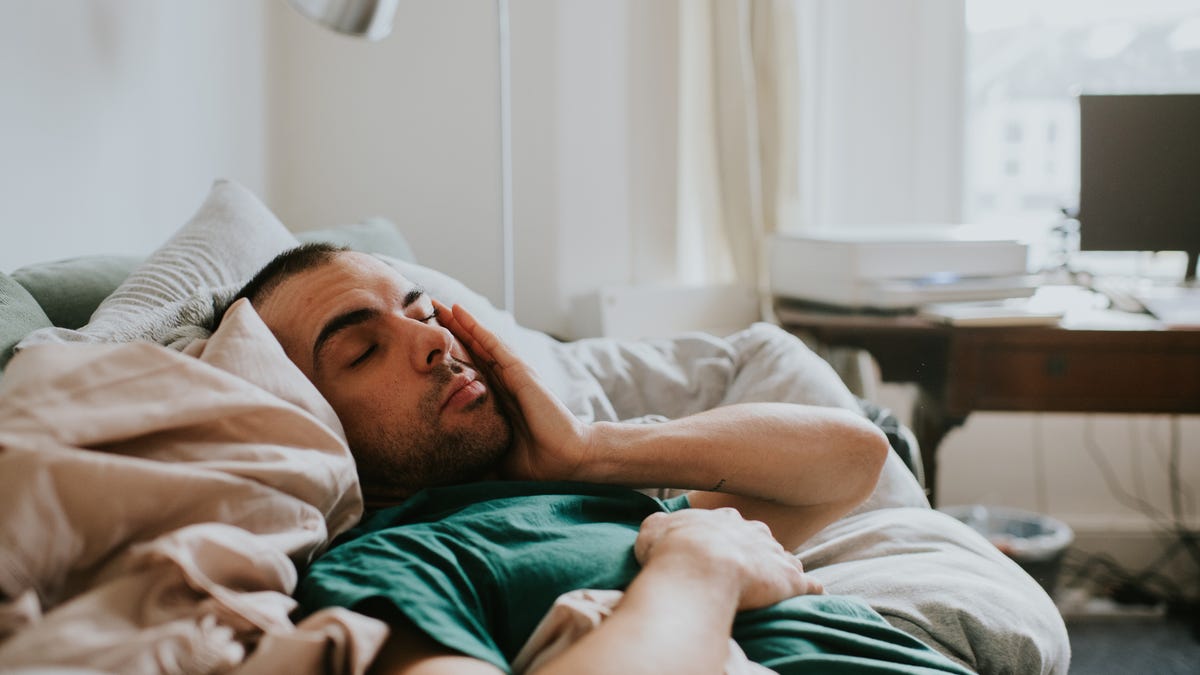 Why You Can Trust CNET
Why You Can Trust CNET Top 10 Best and Worst Cities For Sleep Health (And How to Combat it)
Sleepless in...Philadelphia? Here are the cities with the best and worst sleep health, and tips on getting better rest among the bustle.

New York City is known as the city that never sleeps, but according to a study published by US News & World Report's 360 Reviews, Philadelphia and a few other East Coast destinations may have it beat.
Researchers drew conclusions based on Centers for Disease Control and Prevention sleep duration and physical activity reports by state, as well as environmental pollution data by city, including air, noise and light, all of which can impact your sleep health.
These are the cities US News & World Report 360 Reviews found to have the best and worst sleep health.
Top 10 cities for sleep health
- Austin, Texas.
- Raleigh, North Carolina.
- Fort Worth, Texas.
- San Diego.
- Colorado Springs, Colorado.
- Albuquerque, New Mexico.
- Tulsa, Oklahoma.
- Omaha, Nebraska.
- San Jose, California.
- Tucson, Arizona.
Worst 10 cities for sleep health
- Philadelphia.
- Miami.
- Detroit.
- New York City.
- Memphis, Tennessee.
- Chicago.
- Washington, DC.
- Boston.
- Long Beach, California.
- Fresno, California.
Tips for sleeping better in a bustling city
We spoke with Dr. Michael Breus, clinical psychologist and owner of the Sleep Doctor, who cited this study when discussing the different kinds of sleep disruptors that populations in big cities have to cope with.
It isn't noise or light pollution alone that can harm our quality of sleep. According to Breus, "certain sounds signal an alarm for your brain, like sirens or loud neighbors. So when you hear them, it can cause some level of anxiety. Anxiety is really the opposite of sleep."
Living the city life doesn't mean you have to sacrifice quality sleep. Breus offered a few tips on maintaining healthy sleep quality, regardless of the hustle and bustle outside your window.
It's helpful to be mindful of possible sleep disruptors and take preventative measures to drown them out and soothe the anxiety they might cause.
1. Wear earbuds made for sleep
Though Breus doesn't recommend over-the-ear headphones that can make side sleeping or switching positions uncomfortable, he does approve of earbuds and headphones specifically designed to accommodate sleep.
2. Have a bedtime routine
Breus said it's important to maintain a regular bed- and wake-up time because "this helps keep the circadian rhythm working." Once you get in the routine, your body will recognize your bedtime rituals as a signal that it's time to wind down, and it'll trigger your natural production of melatonin to promote sleepiness.
3. Wear a sleep mask
Sleep masks are a budget-friendly way to keep light from disrupting your sleep. They range from $5 to $25 (or more), making them work for almost any budget. A recent study found that sleep masks can also help boost brain functions and alertness.
4. Try a white noise machine
Breus also suggests trying a white noise machine if it's noisy outside. White noise contains high and low frequencies that can effectively drown out sounds that may otherwise disrupt your sleep.
5. Have comfortable bedding
Don't skip out on a comfy setup. "I would argue that getting the right sleep system (a good mattress, pillow, sheets, etc.) is one of the most critical aspects to a good night's rest," Breus said, "especially in a city where some of the environment is out of your control."
Your pillow should be accommodating for your sleeping position, and you can consider cooling products if you're a sleeper who gets warm at night.
6. Consider blackout curtains
Breus suggested blackout curtains as a solution to light pollution. They're made with a thick fabric and an extra tight weave that effectively blocks out light. As an added bonus, blackout curtains can help you save energy and regulate temperature by preventing heat from the sun from coming through your window.

